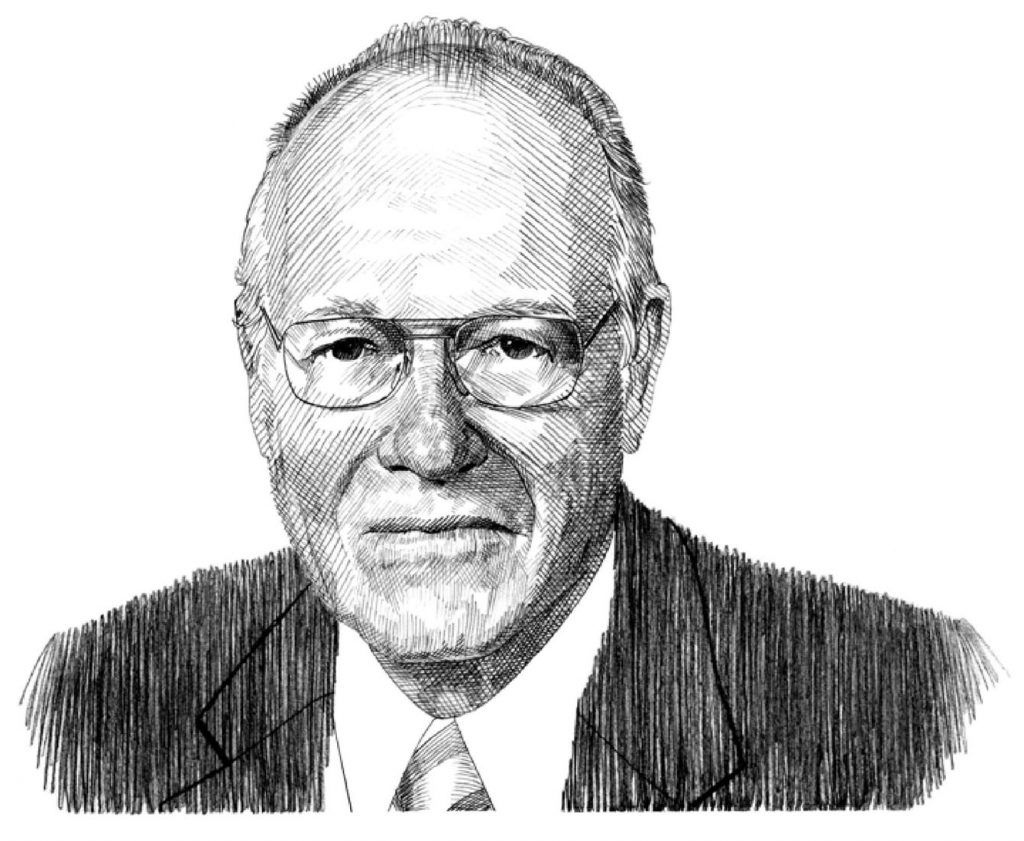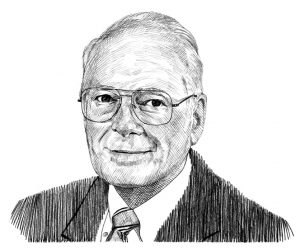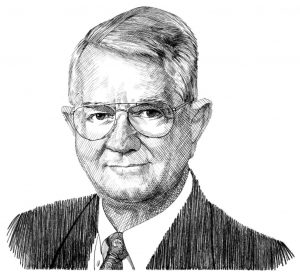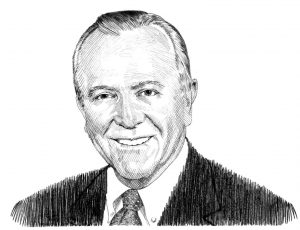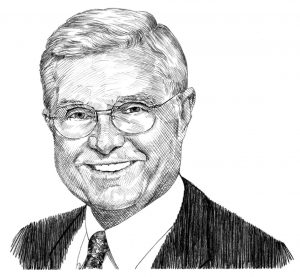When the late Dr. Paul Flowers opened his hospital in Dothan in 1950, he was not only the administrator but also served as a surgeon, bookkeeper, anesthetist, and backup cook.
Today, that 12-bed facility, originally named the Woman’s Hospital, is Flowers Hospital, a regional medical referral center for 450,000 people living within a 50-mile, 16-county radius. The hospital has 235 acute-care beds, four intensive care units (medical, surgical, cardiac care, and cardiovascular), and 38 outpatient surgery beds.
The hospital has been a catalyst for change in the Wiregrass area. The growth of Flowers Hospital has established health care as a major local industry. With more than 1200 employees, Flowers Hospital is the second largest employer in Houston County and a major supporter of the tax base.
Dr. Flowers was born in 1915 in Houston County, the son of John Jefferson Flowers, Sr., and Ila McDavid. He lived in Dothan all his life. He graduated from Dothan High School in 1933 and attended Emory University, where he later graduated from medical school. In 1941, he married Grace Dejarnette Tazewell, and the couple had seven children: Paul R. Flowers, Jr., wife Barbara; Grace F. Kiker (deceased), husband Frank; J. McDavid Flowers, wife Jeanie; Robert E. Flowers, wife Carol; Cordelia F. Boone, husband Tom; William T. Flowers, wife Carroll; and George D. Flowers, wife Laura.
He and his wife returned to Dothan in 1943 and he began his obstetrical and gynecological practice. In 1950, he converted a house on West Main Street into a small 12-bed hospital. He used his office as the emergency room and a table in the kitchen as the hospital dining quarters, with his wife, Grace, preparing many of the meals.
The hospital gradually grew, and by 1962, patient needs had exceeded the capacity of the original structure. An addition to the hospital was opened in 1963 which included a new 60-bed unit, two operating rooms, and two delivery rooms. In 1969, a three-story addition was built, adding 60 more beds.
By the summer of 1975, 40 doctors served the hospital, including two cardiologists, marking the first time physicians specifically trained in cardiology were available to the community. After more than five decades, the atmosphere of care that has long permeated the hospital is still in evidence; health care continues to be viewed as a very personal service provided to patients who are treated like family and neighbors. The same spirit that guided its tiny forbearer still fuels the heart of Flowers Hospital.
In committing to establish a cardiology program, Dr. Flowers agreed the hospital should be equipped to meet the physical needs such an undertaking would require. This meant an extensive outlay of capital in order to purchase equipment and supplies for the first cardiac catheterization laboratory in Dothan, to improve existing intensive-care facilities and monitoring capabilities; and to seek out and train qualified registered nurses and technical personnel.
In 1978, the hospital opened an 80-bed, three-story addition and signed a contract with Hospital Corporation of America to oversee the hospital’s operation, management, and planning. As the community grew, more patients were brought in, creating a need for still more doctors to care for them. By 1979, it became apparent the hospital not only needed to position itself to take advantage of this growth but also to try and stay ahead of it. The building on West Main Street had grown as much as possible. Following the advice of hospital management, Dr. Flowers decided to construct a new hospital on the western side of Dothan, in the 0direction of the city’s growth pattern.
In 1992, the Flowers family sold the hospital to Quorum Health Group, the company that had been managing it for many years. Although the ownership changed, the hospital remained a private facility. In October 2000, Quorum Health Group, Inc., signed an agreement withTriad Hospitals, Inc., for Triad to acquire Quorum.
Shortly before he died, Dr. Flowers was asked to reflect on the growth of the hospital. He replied: “I am humbly appreciative of all the many good people who have made all of this possible by the loving service they have given.” That sentiment was surely mutual.

